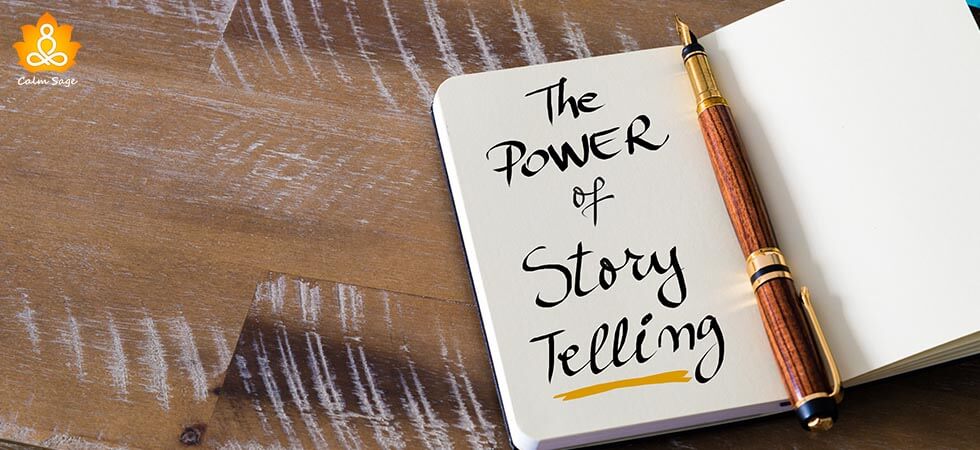The Power Of Storytelling On Mental Health

“It’s like everyone tells a story about themselves inside their own head. Always. All the time. That story makes you what you are. We build ourselves out of that story.” – Patrick Rothfuss, Author
The art of storytelling has been there since the beginning of time. The skill of narrating a story has been a part of traditions all around the world. Stories are the treasure trove of world knowledge, culture, history, and experiences.
In earlier times, storytelling was a part of the culture where elders of the society would pass on their memories and experiences to the younger generations for the purpose of keeping their experiences alive.
In recent times, the act of storytelling has become more than just entertainment and teaching. It is now used as a part of psychological treatment for various disorders and improving cognitive health.
Researchers have been trying to work on proving the psychological and therapeutic benefits of storytelling on brain health. Some of the research has shown that patients with dementia benefit from participating in group storytelling. There is also reminiscence therapy that helps people with Alzheimer’s and dementia improve cognitive functions, mood, and positive thinking. Storytelling has also shown to help improve memory and social interactions.
Storytelling is a good exercise for brain development as it strengthens creativity and gives our mind a good power workout.
How Do Stories Help?

When people share their experiences in the form of stories, it becomes easy to relate ourselves to that situation. After we listen to stories from others we feel and we know that we are not alone and that someone else has gone through something similar.
Especially with support groups like; alcoholics anonymous, social anxiety, depression, abuse, cancer, and many more – people with similar conditions find it easy to recount their experiences and find help from listening to others.
Storytelling is inspiring. When we hear other people recounting stories of their hurdles and challenges, it gives us the strength to overcome our own challenges and face our fears.
Sharing experiences with each other can help normalize mental health disorders. The more we share stories of the challenges and difficulties we’ve overcome, the more we are able to make talking about such conditions and disorders normal.
Storytelling is a great way to remove the stigma surrounding mental health altogether.
Tips On Storytelling

Here are some tips you should keep in mind when storytelling:
- Be enthusiastic. Storytelling is only effective when you are passionate about the subject of your story.
- Keep smiling. When telling a story keep your smile on. Your facial expressions, voice intonation can help reach people more than anything.
- Keep it short. Long stories can take away the point of the story and can become boring. Keep your stories short and to the point. The aim is to get a message across.
- Details matter. When you include details in a story, it becomes more lively and interactive.
- Be emotive. Storytelling is an act of creativity. Be emotionally active and talk about your feelings. Facts don’t help in storytelling – emotions do.
- Keep it interesting. Storytelling is how you tell a story and not what you are telling. Any story can be interesting if you know how to tell it.
On A Personal Note
Therapy can be anything – be it writing, talking, reading, or listening. Storytelling has been a tool of education for centuries and it has proven to be an effective tool to teach and help people forever.
When someone we care about is going through something difficult we try to help them by telling them about our experiences; this is storytelling. Narrating our experiences and memories to help someone is therapeutic.
Storytelling encourages compassion and empathy and uses our creative thinking and helps us reach out to people who are too afraid to speak up about their mental health conditions.
Bibliotherapy is a therapy model that includes storytelling as a part of treatment for various mental health disorders including depression, anxiety, trauma, and PTSD (post-traumatic stress disorder).
The power of storytelling for mental health is huge. It helps us connect with people with similar experiences and conditions, it inspires us to stand up and speak up, and it enables us to empathize with others.
Remember this; you are not alone.
You are important, you are enough.
Stand up, speak up, and share your stories!





















very well written. Good to know such things.
Storytelling, Diary Writing does help Indeed they are the way to express ourselves thanks for reminding it